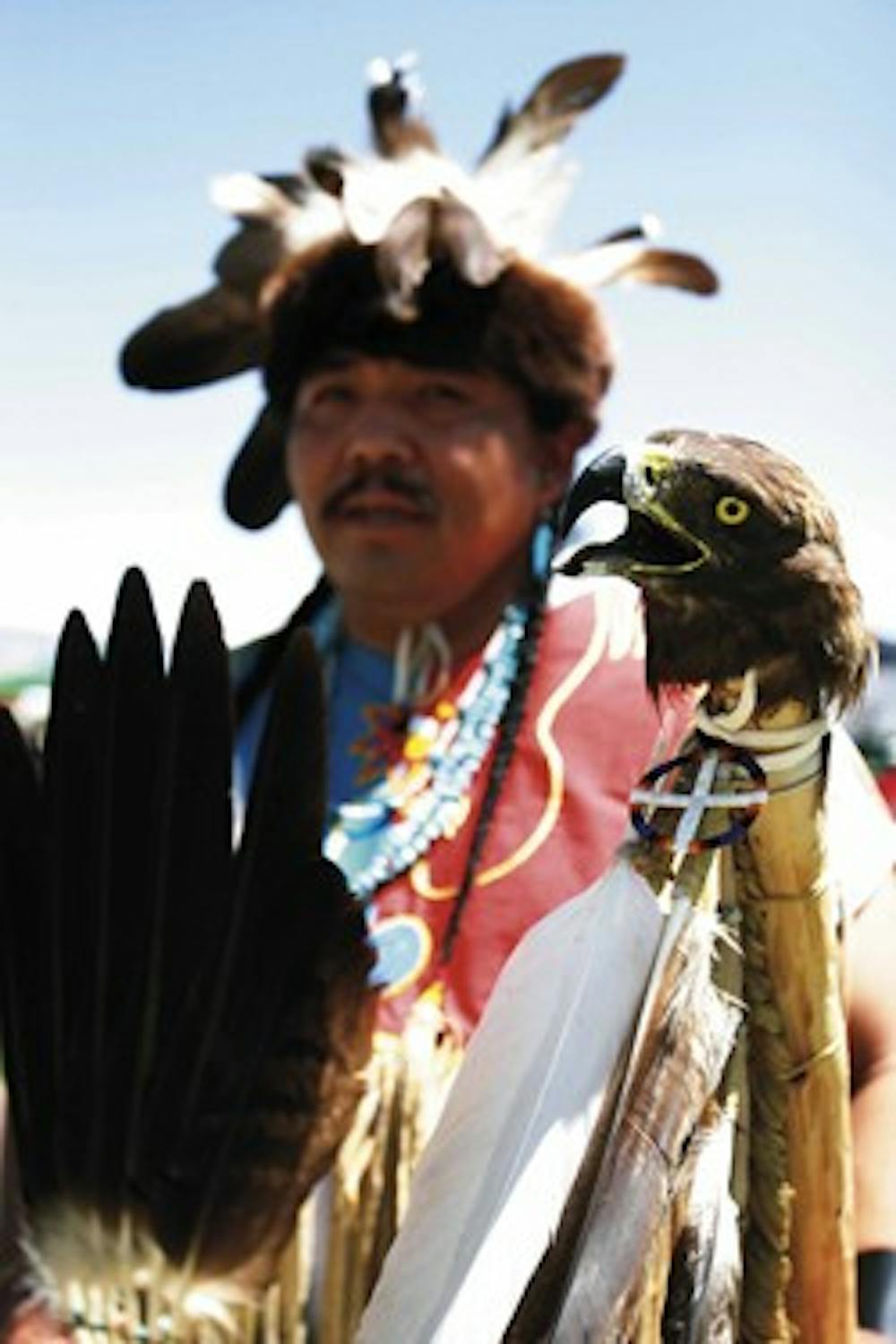by Christopher Sanchez
Daily Lobo
Everyone has a form of therapy.
For UNM-Gallup student Wayne Wilson, it's ceremonial dancing.
"It's all personal. It's for me. It's my therapy," Wilson said.
Get content from The Daily Lobo delivered to your inbox
Wilson, along with about 200 others, participated in the Nizhoni Days Powwow on Sunday at Johnson Field. The powwow was sponsored by UNM's Kiva Club in honor of UNM American-Indian alumni.
Patrick Willink, president of the UNM Kiva Club, said the free event is a ceremony of social dancing. The powwow is an alternative to the well-known Gathering of Nations held at The Pit every year, Willink said.
The Nizhoni Days Powwow is traditional, because the event doesn't focus on competitions, and it was free to the public, he said.
Kenny Brown said the traditional powwow brought him all the way from Arizona.
"A long time ago, people came to dance and have a good time, but nowadays they have contests," Brown said. "This powwow is all about the traditional ways."
He said he learned ceremonial dances from his grandfather. It is important to carry the tradition and continue to pass it through generations, he said.
Each group of drummers was presented with a gift basket. Tobacco, cinnamon rolls and other treats were just a few items in the basket.
The baskets are given to the groups to show support, said Andrea Hanks, member of the UNM Kiva Club.
"It's significant to honor the drummers who came from outside to support and add to the powwow," she said.
UNM-Gallup student Randy Brokeshoulder led a group of drummers in a grass dance.
"The dance represents the Earth, and the prairie, and the way the grass sways," Brokeshoulder said.
Brokeshoulder said people other than American Indians should attend the powwow to learn about the different tribes and make friends.
The purpose of the powwow was to thank American-Indian alumni, Hanks said.
"They came and got their education, and we're following their footsteps," Hanks said.
Because the powwow is held at UNM, it is a way of highlighting the University for its diversity, she said.
"As tradition goes, we have it featured here," she said.
There were more than 20 vendors at the powwow selling jewelry and other traditional items. UNM clubs were welcome to set up booths for free, but outsiders had to pay to sell items on the field, Hanks said.
Wilson said he happened to stumble upon the powwow after attending the Gathering of Nations. He was dancing for his uncle, who was a Navajo Code Talker and taught him how to dance.
He learned how to dance about 10 years ago, Wilson said.
"I've finally found myself," he said.
The powwow was concluded with a feast of traditional American-Indian food.






